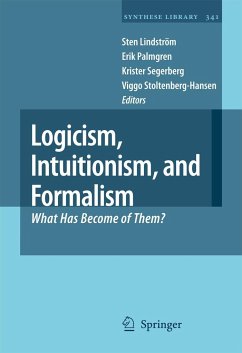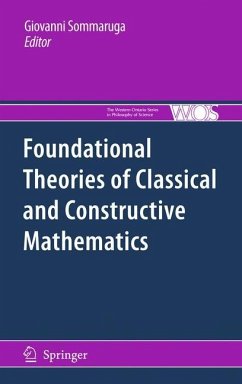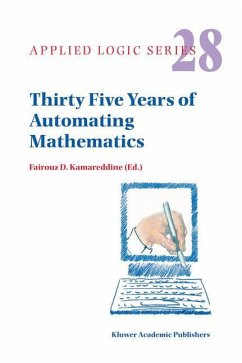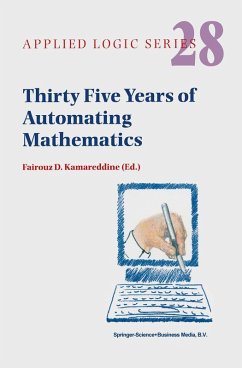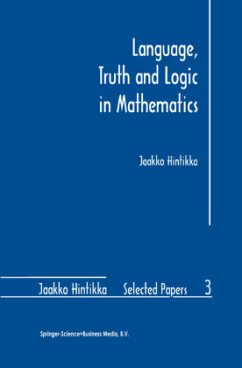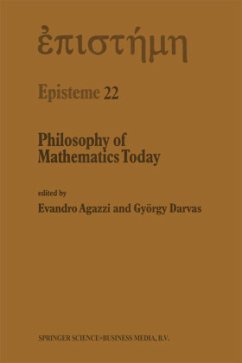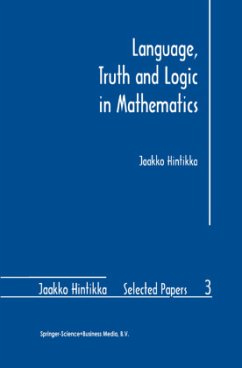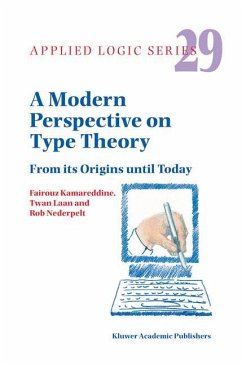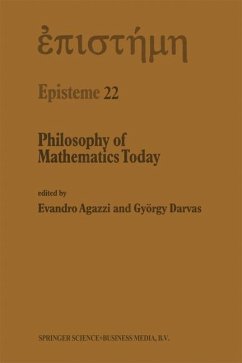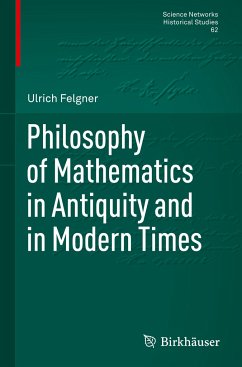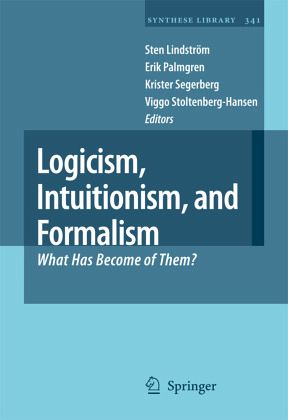
Logicism, Intuitionism, and Formalism
What Has Become of Them?
Herausgegeben: Lindström, Sten; Palmgren, Erik; Segerberg, Krister; Stoltenberg-Hansen, Viggo

PAYBACK Punkte
107 °P sammeln!
The period in the foundations of mathematics that started in 1879 with the publication of Frege's Begriffsschrift and ended in 1931 with Gödel's Über formal unentscheidbare Sätze der Principia Mathematica und verwandter Systeme I can reasonably be called the classical period. It saw the development of three major foundational programmes: the logicism of Frege, Russell and Whitehead, the intuitionism of Brouwer, and Hilbert's formalist and proof-theoretic programme. In this period, there were also lively exchanges between the various schools culminating in the famous Hilbert-Brouwer controve...
The period in the foundations of mathematics that started in 1879 with the publication of Frege's Begriffsschrift and ended in 1931 with Gödel's Über formal unentscheidbare Sätze der Principia Mathematica und verwandter Systeme I can reasonably be called the classical period. It saw the development of three major foundational programmes: the logicism of Frege, Russell and Whitehead, the intuitionism of Brouwer, and Hilbert's formalist and proof-theoretic programme. In this period, there were also lively exchanges between the various schools culminating in the famous Hilbert-Brouwer controversy in the 1920s.
The purpose of this anthology is to review the programmes in the foundations of mathematics from the classical period and to assess their possible relevance for contemporary philosophy of mathematics. What can we say, in retrospect, about the various foundational programmes of the classical period and the disputes that took place between them? To what extentdo the classical programmes of logicism, intuitionism and formalism represent options that are still alive today? These questions are addressed in this volume by leading mathematical logicians and philosophers of mathematics.
The volume will be of interest primarily to researchers and graduate students of philosophy, logic, mathematics and theoretical computer science. The material will be accessible to specialists in these areas and to advanced graduate students in the respective fields.
The purpose of this anthology is to review the programmes in the foundations of mathematics from the classical period and to assess their possible relevance for contemporary philosophy of mathematics. What can we say, in retrospect, about the various foundational programmes of the classical period and the disputes that took place between them? To what extentdo the classical programmes of logicism, intuitionism and formalism represent options that are still alive today? These questions are addressed in this volume by leading mathematical logicians and philosophers of mathematics.
The volume will be of interest primarily to researchers and graduate students of philosophy, logic, mathematics and theoretical computer science. The material will be accessible to specialists in these areas and to advanced graduate students in the respective fields.





